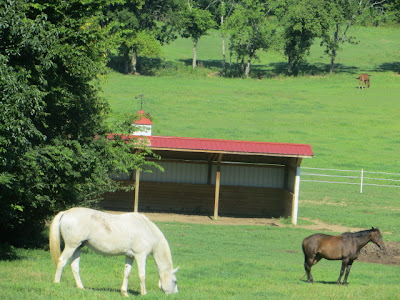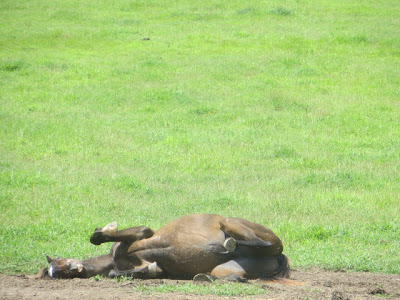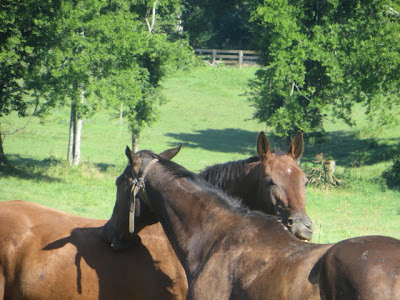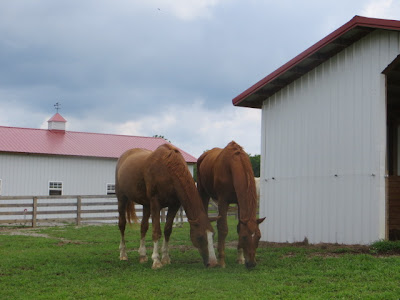(post by Jason) Most of the time in Middle Tennessee spreading compost piles in late July would be a strange job and a fool’s errand if one were looking for it to have any sort of fertilizer value in terms of growing grass. The reason for this is that most of the time late July is very hot and also quite dry. Typically even our warm season grasses go into a semi dormant status depending mostly on moisture availability.
We practice a form of modified manure composting on this farm, and I was saving most of last winter’s manure to spread in another couple of months in hopes of stimulating some cool season grass growth later this fall. All you have to do to compost manure in this climate is stack it and leave it alone for a little while. Turning it will speed the process but honestly the process happens here too quickly as it is. Composting slows down during the winter here but it never stops. When it is hot it is unbelievable how quickly the composting process takes place. When I explain this to people who live in cooler or drier climates they nod, smile and clearly don’t believe me. However if one were determined to do so it would be possible to make large quantities of passable composted manure in a month or less….honestly maybe less…. during the warmest part of the year simply by stacking it up.
As I mentioned previously, moisture availability is normally low this time of year. However, moisture availability has NOT been a problem so far this summer; in fact we are having a pretty good rain as I write this post. When I thought it through I decided that I would really like to take advantage of this rare situation by applying manure to our warm season grasses in an effort to stimulate some growth right now. So that is what I did. I lost count of the loads I put out today but I spread everything I had accumulated across five out of six of our large pastures. I planned to spread until I finished today but as is often the case I ran out of day before I ran out of compost, tractor fuel or ambition. This leaves me four piles, maybe thirty loads or so in total, to spread across the one remaining pasture. Hopefully a couple of hours ought to see that job to completion and I will get after it as soon as it dries up.
____________________________________
loading and spreading compost


Oskar and Donovan
Thor, Fabrizzio and Walden
Toledo and Johnny grooming
Clayton and Stormy just hanging out
Johnny and Murphy were having fun
Apollo having a good roll
Moe decided he needed to roll as well
Levendi looking very relaxed

























































